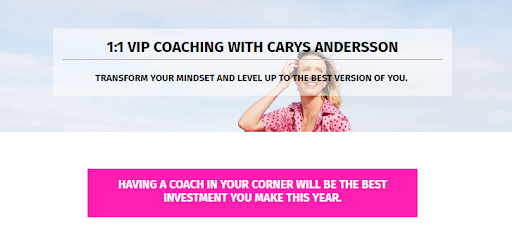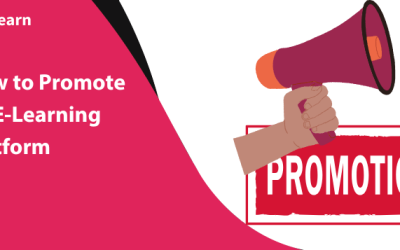How Much Do Life Coaches Make?
Are you a new life coach figuring out the right pricing strategy? Or are you an established coach exploring ways to maximize your income? Pricing your life coaching services is important to determine your face value as a coach.
Before clients experience the quality of coaching services, it’s your coaching prices that get noticed! So, charging a lower price isn’t always an attractive bet; your clients might associate the value of your services with your prices.
This brings us to a pivotal question — how much does a life coach make?
That’s exactly what we expound through this blog! From the existing standards in the life coaching industry and the different pricing strategies to the factors influencing your prices, we cover everything that helps you decide your life coach prices!
What is a Life Coach Salary?
Life coaching is a $1.4 billion industry projected to expand at a 4.85% CAGR from 2023 to 2030. Since life coaching is an extensive field, there’s considerable demand for life coaches.
So, how much does a life coach make a year?
Starting a life coaching business is a profitable endeavor!
While it’s difficult to provide an exact figure, we have pulled in some essential statistics to help you with pricing.
According to Glassdoor, the median life coach salary is $68K per year. As per Salary.com, the average salary was $63,750 per year in the United States.
The price charged by a life coach depends on several factors, such as experience, niche, and the pricing structure employed.
For example, there are different types of life coaching, such as relationship coaching, executive coaching, career coaching, etc. Life coaches charge between $75 to $200 per hour; executive coaches charge a higher price range of $175 to $250 per hour.
Most importantly, there’s no cap on how much you can earn as a life coach; it all depends on your efforts and the value you offer!
How Much Should You Charge as a Life Coach?
While it’s entirely your decision to determine the right pricing for your coaching business, here are the different ways coaches set their rates:
Some Life Coaches Start With Hourly Rate
Some life coaches charge a per-hour rate similar to therapists. As they progress in their careers, these coaches charge different rates.
So, how much does a life coach make per hour?
Generally, the life coach rates per hour are around $75 to $200.
While starting out or pursuing certification, you can charge around $50 for a 60-minute session. Once you acquire training, increase your rates to $150 per hour.
After honing an advanced certification like PCC, you can increase your rates to $300 for a 90-minute session. So, typically, coaching rates are based on experience, sessions, and training.
Although $150 per session seems to be a price range that is often heard, how much to charge per session is not the right question to ask!
Pros
- Flexible
Charging per hour or session offers more flexibility in terms of how long you can schedule the sessions.
- Receive Immediate Payments
While starting out, when funds are typically low, charging per hour ensures you get paid for what you offer.
Cons
- Time is a Commodity
Coaching is an outcome-based process. It’s the value you offer that matters! However, when you charge per hour, your clients value your time more than the value and effort you put into your coaching services.
Monthly/ Retainer Rates is a Consistent Income
Coaching is all about transformation, and it takes time to notice a significant change. A monthly or retainer package helps maintain an ongoing relationship and achieve expected goals. Monthly packages are generally common in executive or corporate coaching.
You can offer access to courses along with the resources within the retainer packages. Beginner coaches charge around $500 monthly, while experts charge about $2000.
Here’s what a monthly coaching package includes:
- 2 to 4 live 1:1 coaching sessions, around 4 to 6 hours each
- Email and text support
- Homework between the sessions
- Personality tests and evaluations
- Online software for journaling, goal-tracking, etc.
Tip: Some coaches opt for longer retainer agreements, such as 3,6 or 12 months. Longer agreements also have a low monthly fee. Preferably, demonstrate to your clients what they would achieve at the end of the retainer schedule.
Pros
- Stable Cash Flow
A monthly coaching package offers a steady income flow, unlike charging per session.
- Less Marketing Investment
As you will receive a fixed payment every month, there is no need to go overboard and seek new coaching clients.
Cons
- Unpredictable Results
Each client is different. Hence, you cannot predict how long it would take for a specific client to achieve results.
Experienced Life Coaches Recommend Coaching Packages
This is the most common and recommended pricing structure. In this structure, you pay for a fixed number of sessions in advance. For example, a two-month program could include eight sessions.
You can create different coaching packages, such as 2-month, 3-month, or 6-month packages or even longer packages, like a 12-month package. The client decides which package to purchase. Moreover, your packages can include both private and group sessions.
How to price your coaching packages?
Let’s explain this with a 3-month package example. For example, your 3-month package includes 4 sessions per month, and you charge around $150 per session.
The package cost per month comes to around $600.
So, total package cost= 600 x 3= $1800
Additionally, you can offer discounts for customers who pay the full payment altogether.
Tip: An effective strategy is to reduce the package price for the last month, making the total package price attractive.
Pros
- Stable Cash Flow
As coaching packages are for longer periods, you have a stable income flow. So, instead of searching for new clients, you can focus more on your coaching services and scaling your coaching business.
- Upfront Payment
As clients pay for the coaching packages beforehand, planning your budget and coaching expenses efficiently is possible.
- Outcome-induced results
Coaching packages are generally for 3-month, 6-month or 12-month periods, which gives clients more time to observe results. Clients can choose the package as per their requirements.
- Flexibility to Upgrade or Downgrade Services
In coaching packages, you can opt in or out of coaching services like an extra coaching session or an upsell-like related course, as per your requirement.
Cons
- High Expectations
A full-fledged coaching package is typically tied to an achievable outcome. Clients pay upfront for the package and naturally expect to see the results within the given timeframe. This increases their expectations and creates some pressure to perform well as a coach!
- Less Flexibility
When a client enrolls in your coaching package, you dedicate your time to achieving the client’s goals. If you’re offering 1:1 coaching, you can take a limited number of clients and have less time available.
Value-Based Pricing
This is a completely unique coaching model, where your coaching prices depend upon the value your coaching brings to your client’s business.
Start with questions about the goals and milestones they wish to achieve.
Question: What if they achieve X goal?
If clients achieve a bigger goal, coaches can charge a higher price. But you need more to win your client’s trust to charge higher!

Pros
- More Opportunities for Higher Income
Your coaching prices are tied to your client’s goals. So, if you target top executives within the high-income bracket, you will earn a higher salary.
- Unique Business Proposition
In a coaching industry that charges per hour or markets their coaching program, a value-based pricing structure helps you stand out!
Cons
- Increased Expectation
Value-based pricing sets high expectations and targets for coaches, which also needs detailed research.
- Perceived Value is not Stable
Here the pricing completely depends on the client’s goals & projections. While the client might define a fixed value, that could change over time.
Group Coaching
Once you gain considerable experience with 1:1 coaching and have gained a reasonable number of clients, you can switch to group coaching. It is a great model to make money and help more people!
You can offer half-price to your group coaching participants.
So, how much should you charge for group coaching sessions?
If you charge $1800 for 3-month 1:1 coaching sessions, you can offer group sessions for $997 to $1500 per person.
Pros
- Supportive Community
Group coaching creates opportunities for supporting other members and solving their problems. Thus, build an amazing community in your niche!
- Affordable Prices
Coaches offer group coaching at a lower price point when compared to 1:1 coaching. This could attract more coaching clients to your sessions!
- Networking
Group coaching helps build a network that can share resources and help your clients achieve their goals in the long run. For instance, in a specific niche like career coaching, networking helps share job opportunities.
Cons
- Lacks Personalized Attention
The biggest drawback of group coaching is that participants don’t get personalized attention like in 1:1 coaching.
- Focus on Specific Challenges
Each client has different goals and challenges, and a one-size-approach won’t fit all. Hence, if your clients have specific challenges or concerns, they might not be covered in the session unless you raise them.
VIP Coaching
A VIP coaching session or “VIP days” is a high-impact session in which a coach offers dedicated coaching to a single client. These VIP sessions typically last 4 to 8 hours and might be split over 2 days.
Webinars and group workshops typically cover a broad range of topics, while VIP coaching concentrates on specific goals and addresses the client’s urgent objectives. VIP days focus on specific niches and offer an actionable plan for clients to achieve their goals.
VIP coaching is generally focused on specific growth areas, such as money mindset, niche advancements, branding, client conversions, etc.
Here’s what’s included in VIP coaching:
- 15-minute pre-VIP call
- 4 to 6 hours intensive 1:1 VIP session
- One-hour follow-up call within 1-2 weeks of VIP day
- 2-weeks of email support to assist in the practical applications
- Downloadable exercises and worksheets
A typical VIP experience could cost a few thousand dollars, depending on your target client and the value you offer.

Life coach Carys Andersson offers premium coaching services through her 1:1 VIP coaching sessions.

Pros
- Focused Results
A VIP day is a high-impact coaching session that offers clients a strategic, actionable plan. Such intensive coaching sessions have maximum impact and tangible outcomes.
- Increased Retention
Considering the value that clients get from VIP sessions, they are sure to return as repeat customers and refer your coaching services to other clients.
Cons
- Detailed Research
VIP coaching is a premium service requiring a comprehensive, actionable plan and research.
What are the Factors Influencing Life Coaching Prices?
Now you are adept with the popular pricing structures leveraged by life coaches, let’s understand the factors affecting your life coach prices.
Quality of Service
What is the significant impact you make in your client’s life? Is it a professional goal like a career change or a personal goal like fostering strong relationships? Typically, executive coaching costs more than life coaching for attaining personal goals.
Location
Location is an essential factor that determines your coaching prices. Are you delivering face-to-face or online coaching sessions? In-person coaching costs more than online coaching sessions.
Coaching in a metropolitan or high-income area costs more than coaching in remote areas. Prices also vary depending on your country.
Here’s a quick overview of the life coaching prices for different regions:
| Region | Coaching Price |
| North America | $62,500 |
| Western Europe | $51,100 |
| Oceania | $61,100 |
| Middle East and Africa | $34,900 |
| Eastern Europe | $19,100 |
| Asia | $33,600 |
(Source: 2020 ICF Coaching Study)
Niche
While there are several life coaches, those specializing in a specific niche tend to charge a higher rate.
Some profitable life coaching niches are:
- Executive and leadership coaching
- Business Coaching
- Relationship and family coaching
- Career Coaching
Experience
Yes, your experience and skills definitely matter as a life coach! Starting out as a new coach, the prices would typically be less than $75 per hour, while experienced coaches charge more than $200 per hour. So, you can scale your life coaching income as you climb the ladder!
Pricing Strategy
Underpricing and overpricing are common pricing traps in online coaching. Finding an optimum balance is essential to attracting the right kind of clients. The way you package your coaching services also influences your life coach rate.
For instance, when starting out, a pricing-per-hour strategy works best. Once you gain experience, you can switch to monthly or retainer pricing or long-term packages, which will typically be more expensive.
Target Audience
If your coaching clients include students or those just starting their careers, then you must keep your prices low. Contrastingly, an elite client list of top business leaders and high-profile executives could get you your dream pay.
How to Increase Your Life Coaching Income?
If you dream of a 6-figure income, you can’t stick to the same coaching prices for long!
You need to evolve, right?
The following are the different strategies to increase your life coach prices gradually:
-
Increase Your Rates
The only silver bullet to increasing your prices is offering more value with your coaching packages! Build domain authority in your niche and establish yourself as an expert. Choosing a specific niche, gathering more testimonials, and finding an elite client are the different ways to raise your rates.
-
More Clients
Another way to increase your income is to target more clients. Use different marketing and sales strategies to include more clients within your radar. Find an optimum balance between marketing and coaching.
-
Diversify Your Income Streams
Once you gain considerable experience with 1:1 coaching, diversify your income stream with group coaching, online courses, or podcasts.
Conclusion
There is a demand for life coaching, and it is a fulfilling profession. Although life coaches and therapists seem similar, they function starkly differently. After reading this blog, you might have got a clear grasp of how much a life coach makes!
Life coaches typically offer their services through signature coaching programs rather than per-hour sessions. Define a clear pricing strategy for your coaching; consider your niche, expertise, and target audience during the process.
Lastly, pricing is not the only aspect of being a successful coach; your passion, value and efforts also matter!
FAQ-Related to How Much do Life Coaches Make
1. Is paying for a life coach worth it?
If your coach has considerable expertise and experience in their niche, working with a life coach helps to improve the quality of life and mental health. It can help you achieve your professional goals, create a positive mindset and build self-awareness.
2. How much should you charge as a life coach?
Life coaches charge between $75 and $200 per hour. The cost of coaching is influenced by factors such as niche, expertise, location, pricing strategy, etc.
3. How much does a life coach cost?
People pay around $50- $100 per hour for a beginner coach; an experienced coach costs approximately $100 – $250 per hour, while corporate and celebrity coaches pay above $250 per hour.





